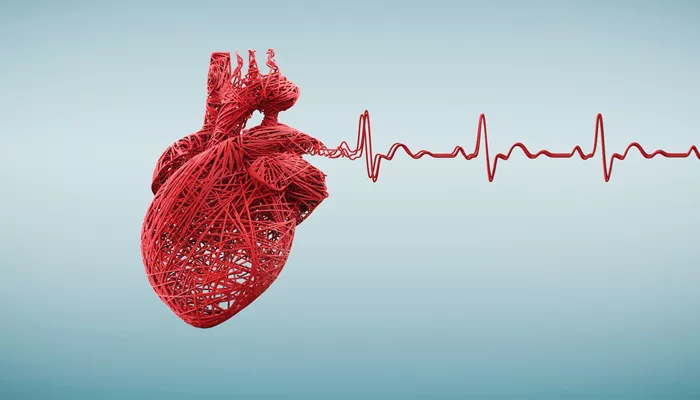Sinus arrhythmia is a condition characterized by an irregular heartbeat that originates from the sinus node, the heart’s natural pacemaker. This phenomenon is often observed in healthy individuals, particularly in children and young adults, where it is generally considered a benign condition. However, in some cases, sinus arrhythmia can indicate underlying heart issues, especially in older adults or those with pre-existing health conditions. Understanding the potential complications of untreated sinus arrhythmia is crucial for timely intervention and management.
What Is Sinus Arrhythmia?
Sinus arrhythmia refers to variations in heart rate that occur with breathing. When a person inhales, the heart rate typically increases; conversely, it decreases during exhalation. This natural fluctuation is termed respiratory sinus arrhythmia and is generally harmless.
However, non-respiratory sinus arrhythmia can occur due to various factors, including heart disease or certain medications, and may require further evaluation.
Possible Complications of Untreated Sinus Arrhythmia
While sinus arrhythmia itself may not always lead to severe complications, untreated cases—especially non-respiratory types—can result in significant health issues. Here are some potential complications:
Cardiac Dysfunction
Heart Failure: Chronic irregularities in heart rhythm can lead to inefficient blood pumping, resulting in heart failure. This condition occurs when the heart cannot pump enough blood to meet the body’s needs.
Reduced Cardiac Output: During arrhythmias, the heart may not contract effectively, leading to decreased cardiac output.
Studies suggest that cardiac output can drop by as much as 20% during episodes of arrhythmia.
SEE ALSO: Can Deconditioning Cause Tachycardia?
Stroke
Blood Clots Formation: Atrial fibrillation (AFib), a common type of arrhythmia associated with sinus irregularities, can cause blood to pool in the heart chambers. This stagnation can lead to clot formation, increasing the risk of stroke if these clots travel to the brain.
Sudden Cardiac Arrest
Ventricular Fibrillation: In severe cases, sinus arrhythmias may progress to ventricular fibrillation, where the heart’s lower chambers quiver ineffectively instead of pumping blood. This life-threatening condition requires immediate medical intervention.
Cognitive Impairment
Transient Ischemic Attacks (TIAs): Reduced blood flow due to arrhythmias can lead to TIAs or “mini-strokes,” which may cause temporary neurological deficits. Recurrent TIAs can increase the risk of permanent cognitive impairment over time.
Increased Risk of Other Arrhythmias
Individuals with untreated sinus arrhythmia may develop other types of arrhythmias over time, such as atrial flutter or more serious forms like ventricular tachycardia or fibrillation. These conditions can further complicate treatment and increase health risks.
Decreased Quality of Life
Symptoms associated with untreated sinus arrhythmia—such as palpitations, fatigue, dizziness, and anxiety—can significantly impact daily life and overall well-being. Patients may experience limitations in physical activity and increased psychological stress.
Organ Damage
Prolonged periods of inadequate blood flow due to ineffective heart function can lead to organ damage over time. Organs such as the kidneys and liver are particularly susceptible to injury from reduced perfusion.
Risk Factors for Complications
Several factors can increase the likelihood of complications arising from untreated sinus arrhythmia:
Age: Older adults are at a higher risk for developing serious complications due to age-related changes in heart function.
Pre-existing Heart Conditions: Individuals with a history of heart disease or structural abnormalities are more likely to experience adverse outcomes.
Lifestyle Factors: High alcohol consumption, smoking, obesity, and lack of physical activity can exacerbate arrhythmic conditions and their complications.
Medications: Certain medications can influence heart rhythm and contribute to the severity of sinus arrhythmias.
Diagnosis And Monitoring
Diagnosing sinus arrhythmia typically involves an electrocardiogram (ECG), which records the electrical activity of the heart. Healthcare providers may also conduct additional tests such as Holter monitoring or echocardiography to assess heart function further.
For patients diagnosed with sinus arrhythmia, regular monitoring is essential—especially for those at higher risk for complications. This may include:
Routine ECGs
Blood pressure monitoring
Lifestyle assessments
Management Strategies
While respiratory sinus arrhythmia usually does not require treatment, non-respiratory types may necessitate intervention based on individual risk factors and symptoms:
Lifestyle Modifications
Encouraging healthy lifestyle choices—such as regular exercise, a balanced diet low in saturated fats and sugars, quitting smoking, and reducing alcohol intake—can help manage symptoms and reduce risks.
Medications
Depending on the underlying cause of the sinus arrhythmia, medications such as beta-blockers or anticoagulants may be prescribed to manage symptoms or prevent complications like stroke.
Conclusion
Sinus arrhythmia is often benign but can lead to serious complications if left untreated—particularly in individuals with underlying health issues or advanced age. Understanding these potential risks allows for better management strategies and timely interventions that can significantly improve patient outcomes.
Related topics:


